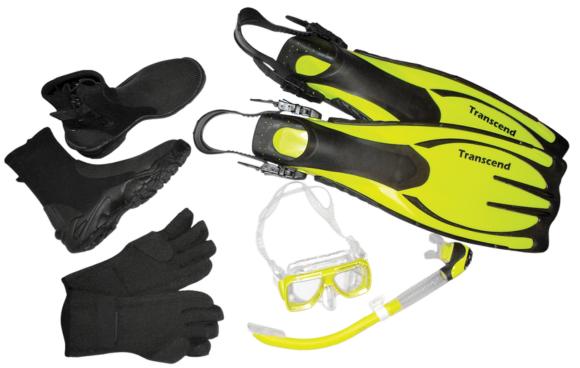Selecting a Dive Course
This is an excerpt from Scuba Diving 5th Edition by Dennis Graver.
There are many diver training organizations and thousands of professional diving educators. Your phone book might list diving businesses that offer sanctioned courses. Many universities, community colleges, and recreational departments also offer scuba courses. (See Appendix A for a list of diver training organizations.) Ask about the qualifications, experience, and reputation of several diving instructors in your area to select the course that can provide you with the best possible training. Here are some questions you should ask:
- Is this training sanctioned by a diver training agency?
- How long has the instructor been teaching scuba diving?
- Which levels of training is the instructor qualified to teach?
- May I speak with the graduates of a recent class?
- Why is this course better than others in the area?
- Are assisting and rescue techniques taught in the course?
- How many instructor-supervised open-water dives are included?
The tuition for diving instruction is usually between $200 and $300. The lowest-priced course may not necessarily be a bargain. Find out what is included with the course fee and, more important, what the total cost will be for you to become certified as a scuba diver. You do not have to purchase all the equipment needed to scuba dive, but you need to have a mask, snorkel, fins, and usually boots and gloves for your training (see figure 1.1). Use of the additional required equipment is typically part of the course tuition.

Required scuba diving training equipment.
You should find out whether the price of the course includes the costs of educational materials and certification. There may be additional costs for travel, lodging, parking, boat fees, and equipment rental for open-water training. Determine the complete cost before enrolling in a course.
When you have selected the best program for you and have enrolled in a course, you should receive a reading assignment for your first session. If you are not given an assignment, speak with the instructor; your learning will be enhanced if you read in advance about the topics to be presented in class. Good diving instructors provide a handout with reading assignments.
Learn more about Scuba Diving, Fifth Edition.
More Excerpts From Scuba Diving 5th EditionSHOP

Get the latest insights with regular newsletters, plus periodic product information and special insider offers.
JOIN NOW
Latest Posts
- How do I integrate nutrition education into PE?
- How does the support of friends and family influence physical activity?
- What makes the Physical Best approach unique?
- Strength training gimmicks . . . or not?
- How do vitamins and minerals support our bodies?
- Why do many people have difficulty losing weight?


